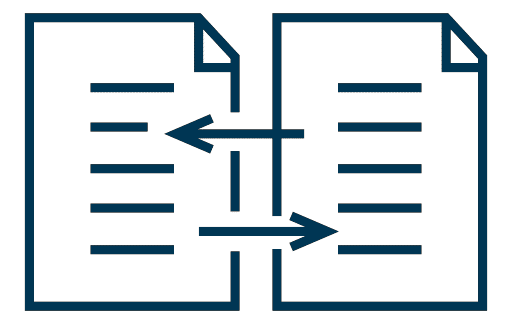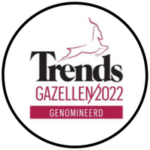Summary In the contemporary business environment, digital procurement is becoming increasingly popular and sought after by businesses around the world. The relationships …
How to navigate procurement in the automotive industry
What is procurement in the automotive industry like?
Supply chain disruptions refer to interruptions in the flow of goods and services, resulting in delays, increased costs, and reduced efficiency. In the automotive industry, these disruptions can significantly affect production schedules, lead to shortages of vehicles, and impact overall profitability.
The automotive industry’s procurement processes are significantly influenced by global factors, economic conditions, geopolitical events, raw material shortages, and logistics disruptions. Disruptions in the supply chain lead to production halts, loss of revenue, and diminished consumer trust. As automakers struggle to secure critical components, they may face increased lead times, which can hinder their ability to meet market demand. Furthermore, disruptions can escalate costs, affecting pricing strategies and profit margins.
What is the impact of disruptions on automotive procurement?
Increased costs and budget constraints
Supply chain disruptions often lead to rising costs for materials and logistics, straining financial budgets. Automotive companies may face higher prices from suppliers and increased shipping fees, which can limit their ability to invest in innovation and expansion, ultimately impacting profitability.
Delays in production schedules
Disruptions can delay production schedules, causing automakers to miss delivery deadlines. These delays can result from shortages of critical components or logistical challenges, leading to inefficient operations and a backlog in fulfilling orders, further exacerbating the overall supply chain crisis.
Quality control issues with alternative suppliers
To mitigate shortages, companies may turn to alternative suppliers, which can pose quality control challenges. These new suppliers may not meet the same standards as established partners, leading to potential defects or inconsistencies in products, ultimately affecting overall product quality and safety.
What are the consequences of disruptions in automotive procurement?

Reduced competitiveness
The inability to maintain consistent production and quality can diminish a company’s competitive edge. When rivals manage to adapt effectively to supply chain challenges, affected businesses may struggle to keep pace, leading to a loss of market position and diminished industry influence.

Potential loss of market share
Supply chain disruptions can lead to missed opportunities and dissatisfied customers, resulting in lost market share. As consumers turn to competitors for timely delivery and product availability, businesses face the risk of long-term repercussions on their customer base and sales volume.

Impact on customer satisfaction and brand reputation
Supply chain disruptions can significantly impact customer satisfaction, as delays and quality issues erode trust in a brand. A damaged reputation can lead to negative reviews and decreased customer loyalty, making it challenging for companies to rebuild their standing in the market.
What are the proven strategies for navigating supply chain disruptions?
In an era marked by global uncertainties and unforeseen challenges, businesses are increasingly prioritising robust strategies to navigate supply chain disruptions. A prime example of these strategies in action is Ford Motor Company. Recognising the vulnerabilities in its supply chain, Ford took decisive steps to strengthen its supplier relationships. With these strategic initiatives, Ford not only fortified its operations but also set a benchmark for resilience in the automotive industry, demonstrating how thoughtful supply chain management can safeguard against disruptions.
Strengthening supplier relationships
Ford diversified suppliers and sought partnerships with technology companies for alternative solutions. By reducing reliance on a few suppliers and regions, the company effectively mitigated risks tied to supply disruptions. This strategic move enhanced Ford’s resilience against future challenges, ensuring smoother operations.
Diversifying supply sources
Ford diversified its semiconductor suppliers and sought partnerships with technology companies for alternative solutions. By decreasing reliance on a small number of suppliers and regions, the company effectively mitigated risks tied to disruptions, strengthening its resilience and ability to tackle future challenges effectively.
Implementing technology solutions
Ford adopted data analytics to gain real-time insights into its supply chain, enhancing forecasting and inventory management. This proactive strategy allowed the company to identify potential disruptions earlier, streamline procurement processes, and significantly improve overall efficiency and responsiveness in operations.
Agile procurement practices
Ford adopted flexible manufacturing processes to adjust production according to available parts and prioritised high-demand vehicles. This agility enabled the company to maintain production continuity despite disruptions, ensuring a swift adaptation to changing market conditions and evolving consumer demands, enhancing resilience.
Enhancing inventory management
Ford employed just-in-time inventory systems and predictive analytics for demand forecasting. By optimising stock levels, the company reduced holding costs and waste, allowing it to align inventory with actual market needs. This approach improved efficiency and minimised the impact of supply chain disruptions on operations.
Navigate supply chain disruptions with Kronos Group
Navigating supply chain disruptions requires strategic foresight and agility, and Kronos Group excels in providing procurement consulting to tackle these challenges. By leveraging data-driven insights and enhancing supplier relationships, we help businesses diversify their sourcing strategies and implement flexible procurement practices.
Kronos Group enables companies to optimise inventory management, streamline processes, and enhance overall efficiency. With Kronos Group’s procurement consulting, you can build a resilient supply chain that adapts quickly to changing market conditions and minimises risks effectively.
Fighting the effects of inflation with sourcing and procurement consultants
Stay up-to-date on the latest insights on procurement, finance, and project management.
Summary Strategic procurement has become a necessity in today’s business world and organisations try to remain competitive. Having the right procurement strategies …
Summary The world of consulting has been undergoing a massive transformation and management consulting jobs are experiencing the impacts of these changes. …
FAQ
Strong supplier relationships foster collaboration and trust, enabling quicker responses to shortages and more effective communication about production capabilities and timelines, ultimately enhancing supply chain stability.
While these strategies enhance resilience and reduce the likelihood of disruptions, they cannot completely eliminate risks. However, they prepare companies to respond more effectively when challenges arise.
By adopting proactive procurement strategies, investing in technology, and fostering strong supplier relationships, automotive companies can navigate disruptions more effectively and maintain their competitive edge in the market.














